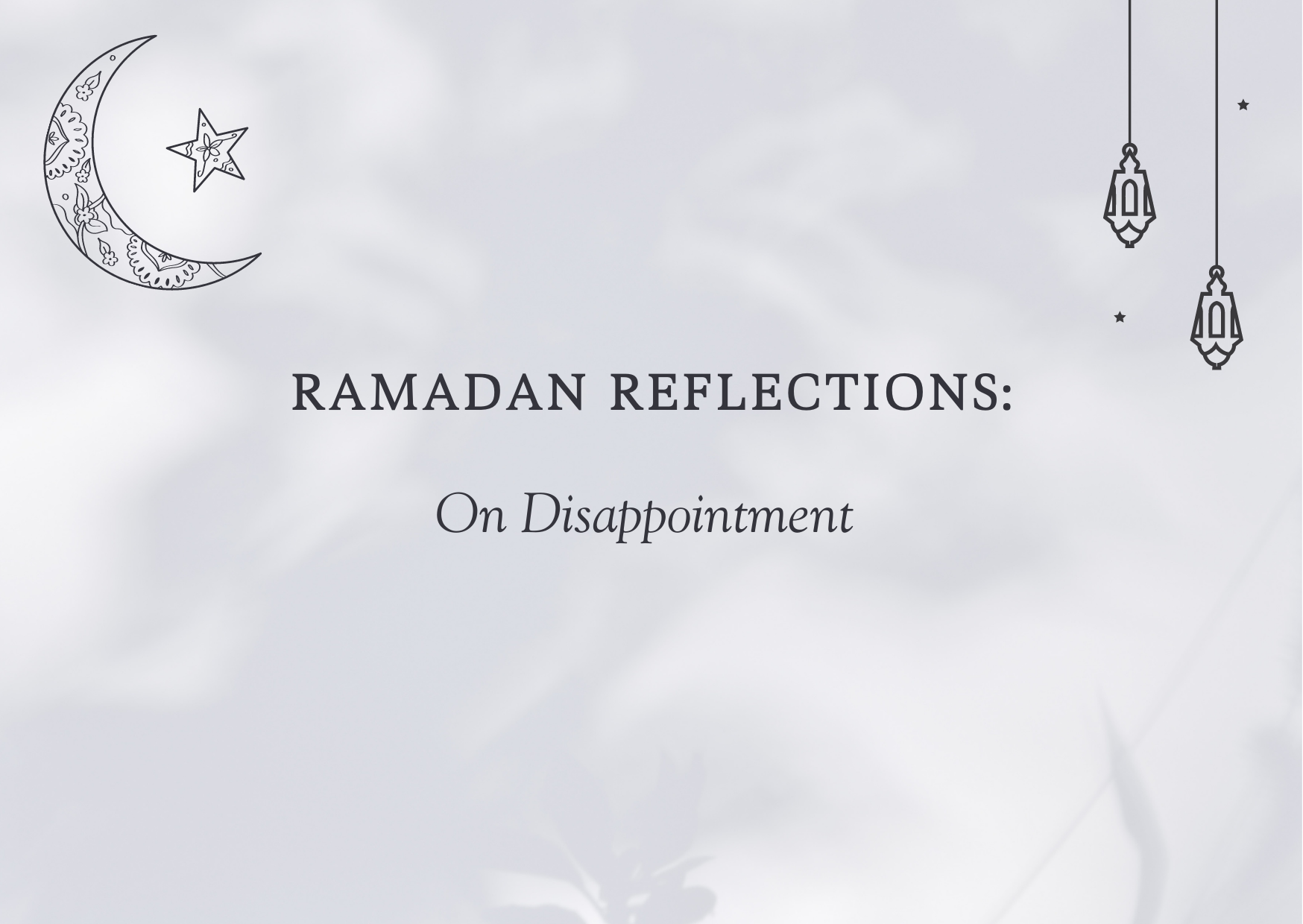Ramadan Reflections: On Disappointment

A couple of days ago, I found myself in a peculiar situation. It’s one I haven’t been to in a very long time. I felt disappointed. Disappointment is a part of life and a feeling we all share and feel at times, whether in our relationships with other people or in ourselves and our accomplishments that we maybe haven’t met. It’s not an easy feeling to sit with, and there are healthy and unhealthy ways to cope with emotions that cannot be avoided.
To understand the disappointment, we first need to validate it. Sometimes disappointment comes from darker areas in our being inhibited by jealousy and deep fear.
It is tempting to dwell in disappointment and maybe make ourselves victims of certain situations. Still, when looking at disappointment more deeply, we will find that disappointment occurs when expectations aren’t met. We tend to ignore or minimize our expectations' effects on us, and this can become more of a problem over time.
It is crucial to validate disappointment and tolerate the feelings that arise. But to do that, we need to understand disappointment first. I narrowed down the types of disappointment to make it easier to spot them when they occur.
1. Disappointment in a Relationship
It’s inevitable to feel disappointed in others. People in our lives have their ideas, feelings, desires, and challenges, so there is no way they will always meet the expectations you have of them. When we feel disappointed in someone, other emotions commonly arise with the disappointment or part of it, such as Resentment, frustration, or even anger.
2. Disappointment in Yourself
Feeling disappointed in ourselves is uncomfortable. It reminds us of our shortcomings and limitations and sometimes that we tried our best but didn’t get the expected outcome of a situation. Sadness and guilt tend to come up as well. We all have many expectations of ourselves; some we even believe to be principles and important guidelines we must follow. How we should act, feel, and think, what we should do with our time and energy, what traits and talents we should have and nurture. Given all those exceptions, it’s easy to understand why disappointment is a universal experience.
3. Disappointment in an Outcome
Sometimes we believe we have done everything right; we work hard and put effort into achieving certain things. And yet, it didn’t seem “enough.” It is hard to blame someone for this type of disappointment because it leaves behind lingering question marks we cannot answer right away. Unfortunately, this type of disappointment leans strongly towards self-doubt and finding reasons within us. And if that isn’t the case, we can easily dwell in the feeling of “unfairness” and self-pity.
Coping Strategy
Whether we are feeling disappointment in a relationship with other people, or ourselves, the only healthy way to deal with this discomfort is to acknowledge the disappointment and validate it. Sometimes we must learn to make our expectations more flexible and realistic to help lessen the negativity for the future. It is very important to accept disappointment as part of life. Learning to regulate how we feel and buy things for what they are is crucial for survival. Sometimes we focus too much on one specific event or situation and forget to look at the bigger picture. Relationships don’t just fall apart after disappointment; progress still happens and continues to progress even with things don’t go as expected.
As for me, I needed to step out of certain situations to focus on myself and my feelings. In doing so, I was able to care for myself more deeply. I could catch myself and be there for myself the way I needed. Because sometimes, no one else can help you out of a situation with complicated feelings. But it is also essential to know when it is best to talk to someone else about how you are feeling. Insight matters. Whether it is from people you trust or in therapy.
![[object Object] photo](/_next/image?url=%2F_next%2Fstatic%2Fmedia%2Fiman-tohami.71a14ca7.jpeg&w=828&q=75)